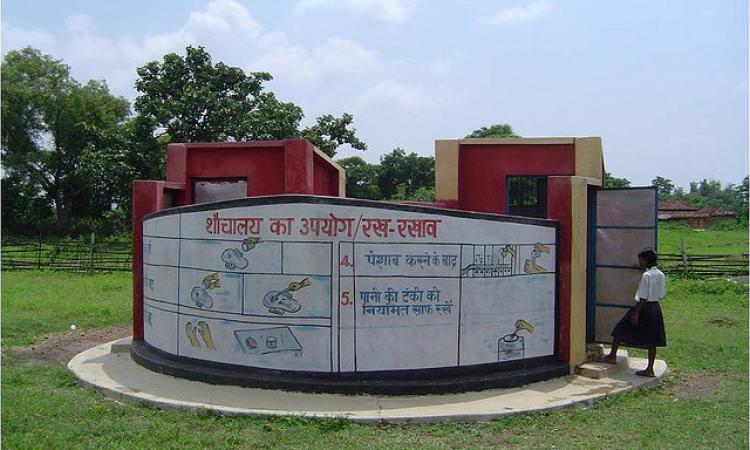
The responsibility of implementing the Swachh Bharat Mission is shared between the Ministries of Urban Development and Drinking Water and Sanitation. While the Ministry of Urban Development (MoUD) is responsible for sanitation in urban areas, the Ministry of Drinking Water and Sanitation (MDWS) is in charge of the same in rural India.
The Mission is expected to bring about a holistic transformation of the sanitation scene in both rural and urban India within a span of 5 years, starting October 2014.
A set of guidelines have been issued by the concerned Ministries that have detailed information about funding pattern, criteria for fund allocation, approval procedure and management structure to help stake holders efficiently implement the programme across the country.
Swachh Bharat Mission - Urban
The overall objective of the mission is to provide complete sanitation solutions for all of India’s 4041 statutory towns. Eliminating open defecation, use of insanitary toilets and manual scavenging is all part of this elaborate scheme. Breaking the age old behaviour of defecating in the open along with sensitizing people on the importance of sanitation and toilet usage are some of the themes that figure prominently in the blueprint.
Provision of household and public toilets, solid waste management facilities, capacity building and awareness generation through information, education and communication (IEC) campaigns are the core components of the Mission. The urban component has been allotted Rs. 62,009 crores of which the Government of India would be pitching in Rs. 14,623 crore.
Detailed information regarding the various technological options for on-site sanitation systems that supported under the SBM-Urban along with norms and specifications is available as an annexure. Detailed layouts and plan figures for different types of latrines are included as well.
Swachh Bharat Mission - Gramin
Bringing about an overall improvement in the general quality of rural life is one of the core objectives of the SBM-Gramin. Creating a genuine demand for sustainable sanitation solutions and changing attitudes and behaviours figure prominently in the to-do list.
Since sanitation is a state subject, the states have been given the freedom to design their own frameworks keeping in mind the overall objectives. State Governments have the flexibility to use incentives available for the construction of individual household toilets in any way they deem fit. Collective behaviour change and community led total sanitation are the widely suggested approaches, with the Centre expected to complement the efforts of the State Governments.
The guidelines issued by the MDWS lists a three-phase process describing the various activities to be undertaken under each of these phases – planning, implementation and sustanability. Some of the important components listed out include start up activities such as conducting baseline surveys and preparing state plans; preparing IEC campaign plans and capacity building of stakeholders such as PRI functionaries and ASHAs. In order to strengthen the implementation mechanism, technical experts on a wide variety of subjects such as IEC, Behaviour Change Communication (BCC) and capacity building will be made available at all levels.
Information about the role of and administrative structure at the Panchayat and block level, role of community based organizations and swachhata doots in addition to microfinance options for toilet construction, rural sanitary marts and community sanitary complexes are included as well. A revolving fund will be made available to SHGs and societies at the district level through which loans will be disbursed to members for constructing toilets.
As the Swachh Bharat Mission aims to serve as a platform for Corporate houses to meet their mandatory social responsibility requirements, the role of CSR funding in improving rural sanitation has also been briefly discussed. Some of the suggestions to corporates and PSUs include taking up IEC work in establishing demonstration units, providing additional funds to households as well as providing trained personnel to maintain sanitation facilities among others. MDWS will co-ordinate the implementation of CSR-funded sanitation projects.
You can download the Swachh Bharat Mission – Urban as well as the Swachh Bharat Mission – Gramin guidelines in a portable document format from the attachments below.
/articles/swachh-bharat-mission-guidelines